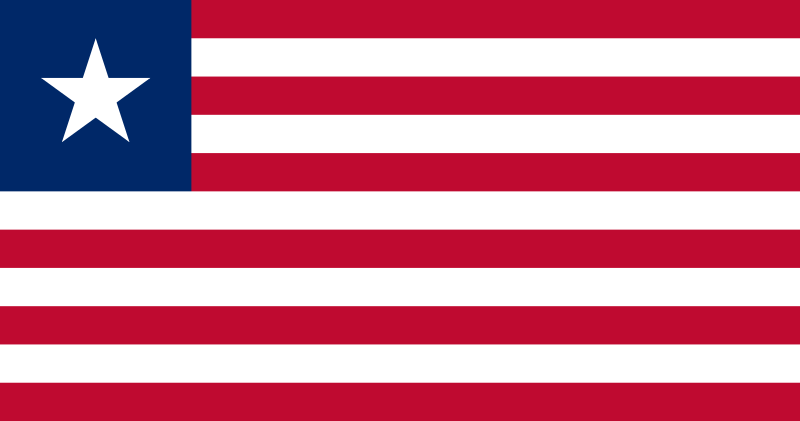 Liberia /laɪˈbɪəriə/, officially the Republic of Liberia, is a country on the west coast of Africa, bordered by Sierra Leone, Guinea, Côte d’Ivoire, and the Atlantic Ocean. As of the 2008 Census, the nation is home to 3,476,608 people and covers 111,369 square kilometres (43,000 sq mi).
Liberia /laɪˈbɪəriə/, officially the Republic of Liberia, is a country on the west coast of Africa, bordered by Sierra Leone, Guinea, Côte d’Ivoire, and the Atlantic Ocean. As of the 2008 Census, the nation is home to 3,476,608 people and covers 111,369 square kilometres (43,000 sq mi).
Liberia’s capital is Monrovia. Liberia has a hot equatorial climate with most rainfall arriving in summer with harsh harmattan winds in the dry season. Liberia’s populated Pepper Coast is composed of mostly mangrove forests while the sparsely populated inland is forested, later opening to a plateau of drier grasslands.
The history of Liberia is unique among African nations because of its relationship with the United States. It is one of only two countries in Africa, along with Ethiopia, without roots in the European Scramble for Africa. It was founded and colonized by freed American slaves with the help of a private organization called the American Colonization Society in 1821-1822, on the premise that former American slaves would have greater freedom and equality there.
Slaves freed from slave ships were also sent there instead of being repatriated to their countries of origin. These colonists formed an elite group in Liberian society, and, in 1847, they founded the Republic of Liberia, establishing a government modeled on that of the United States, naming Monrovia, their capital city, after James Monroe, the fifth president of the United States and a prominent supporter of the colonization.
A military-led coup in 1980 overthrew then-president William R. Tolbert, which marked the beginning of a period of instability that eventually led to two civil wars that left hundreds of thousands of people dead and devastated the country’s economy.
Today, Liberia is recovering from the lingering effects of the civil war and related economic dislocation. Statistics indicate that about 85% of the population live on less than $1.25 a day.

Notes from Wikipedia








